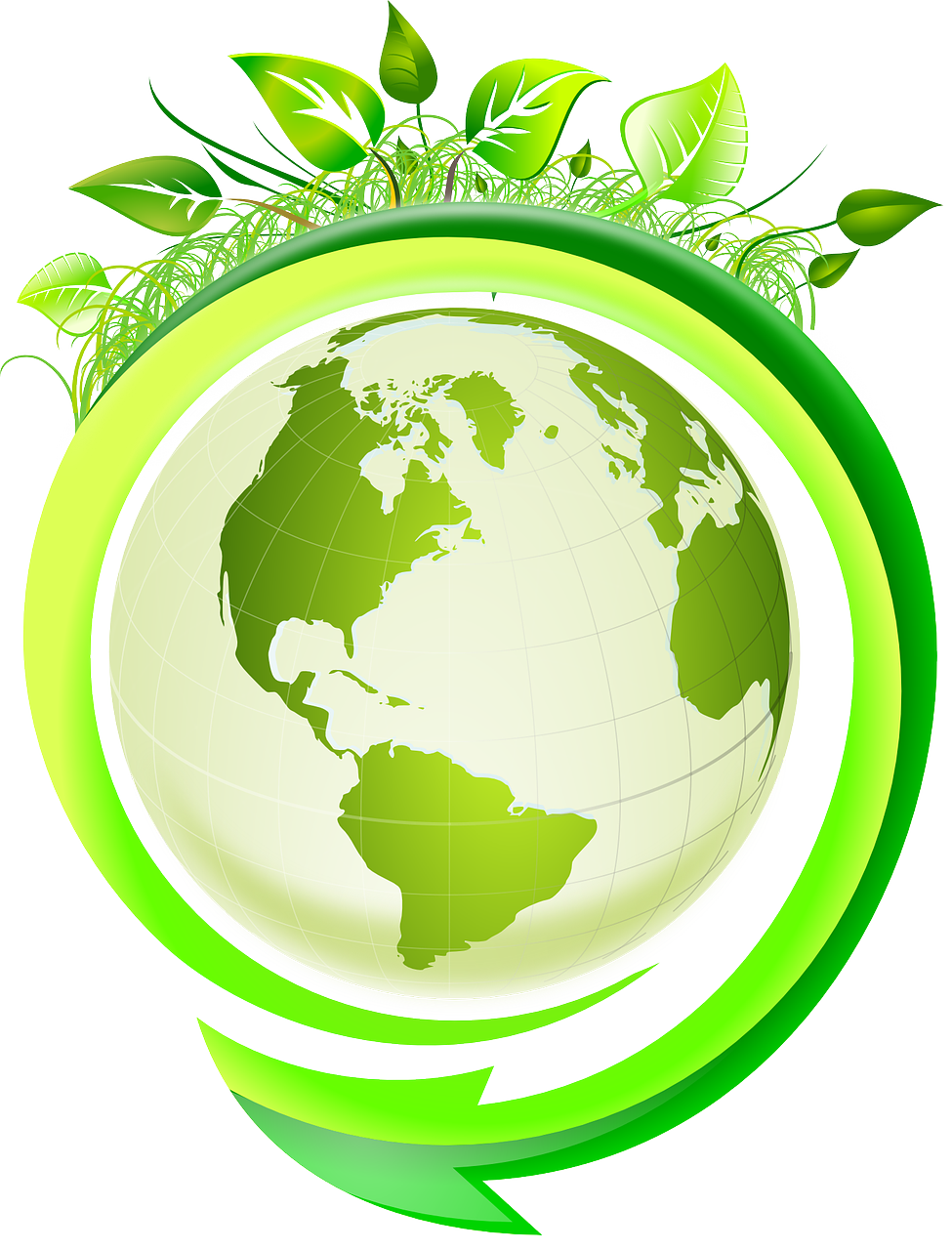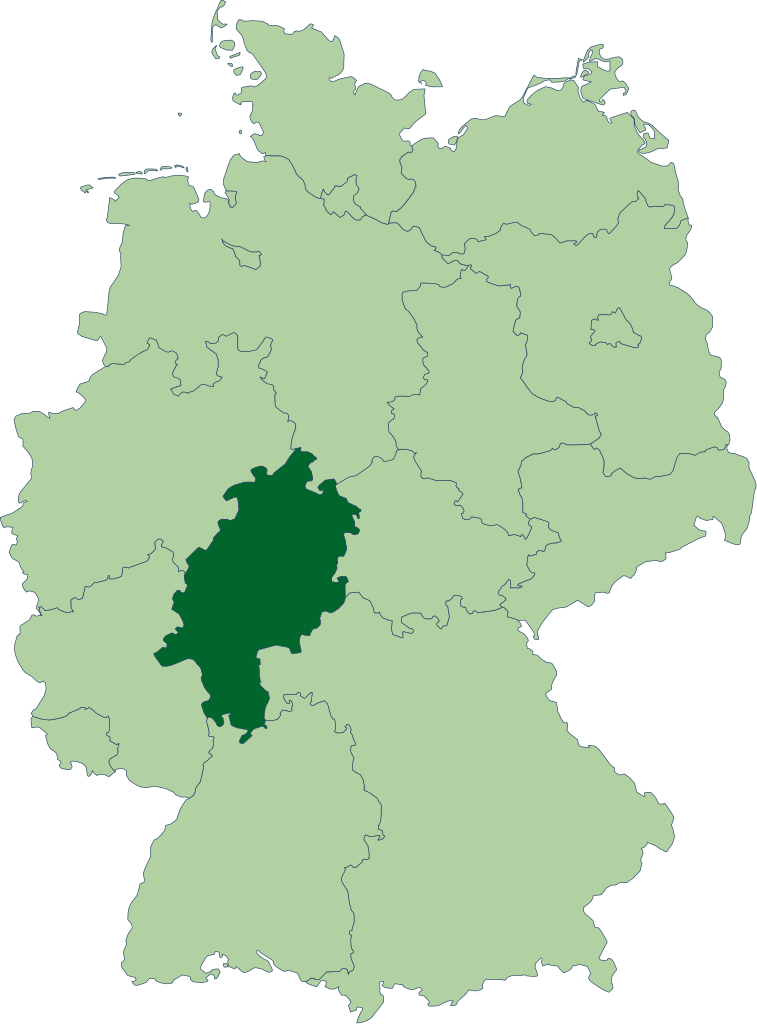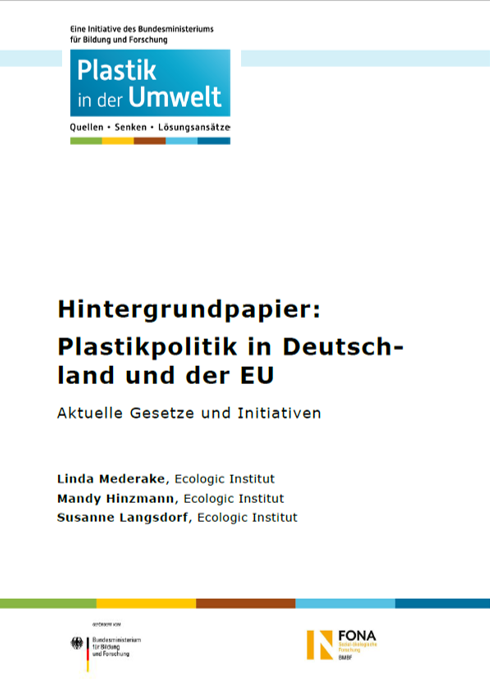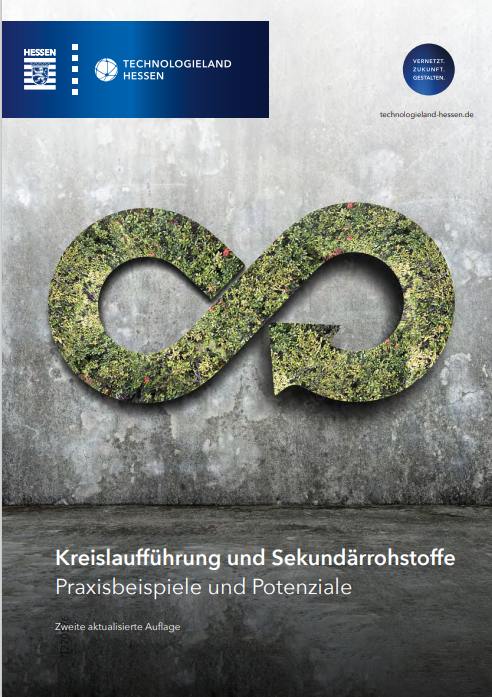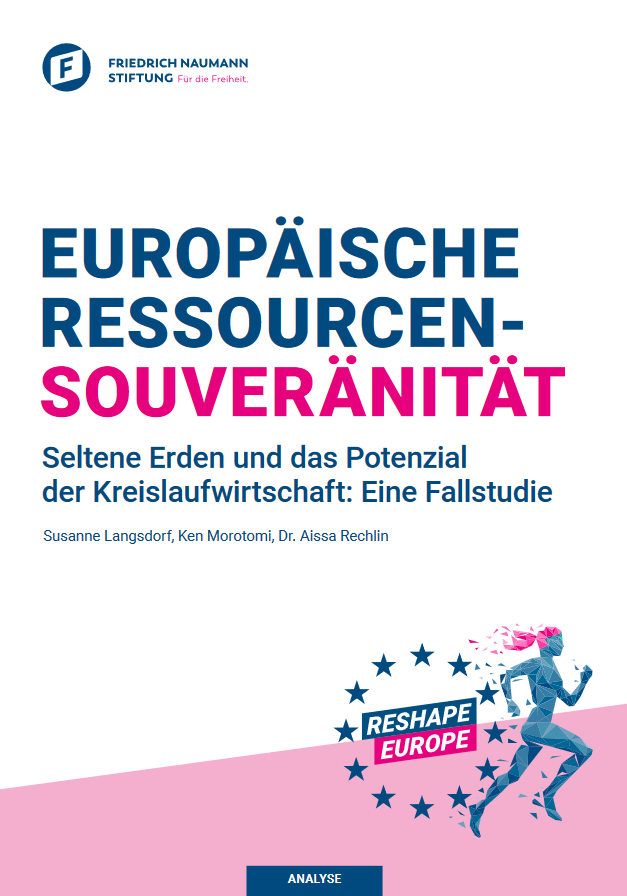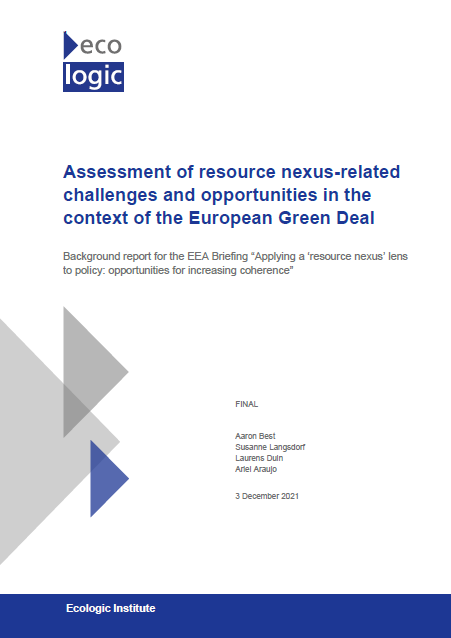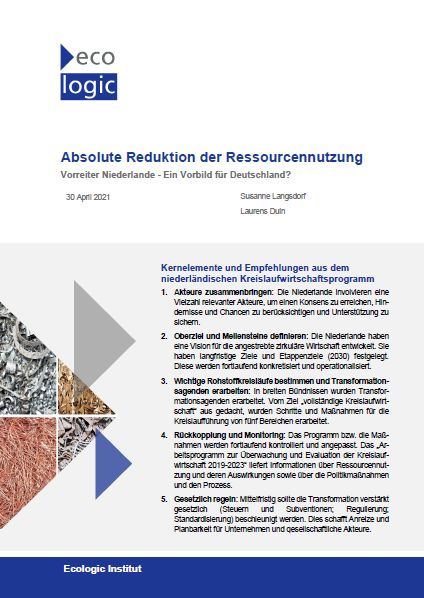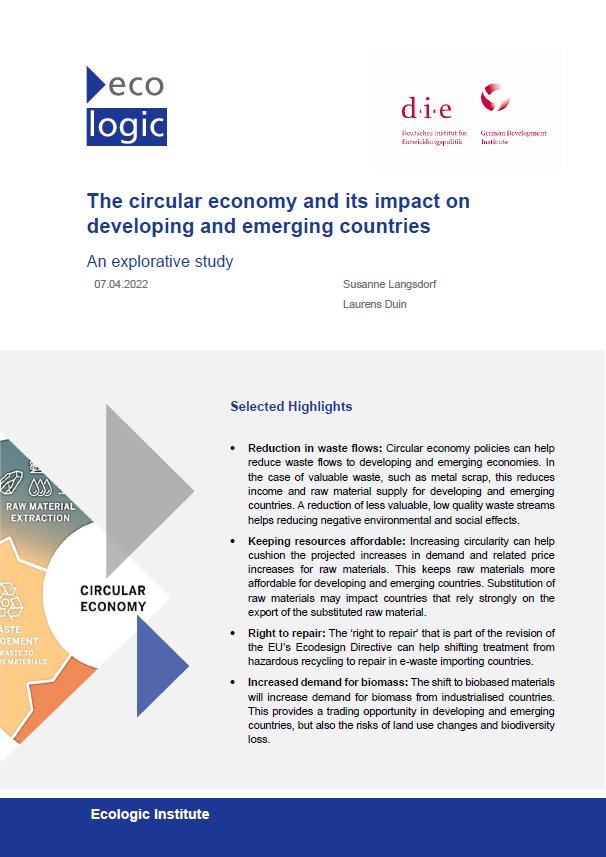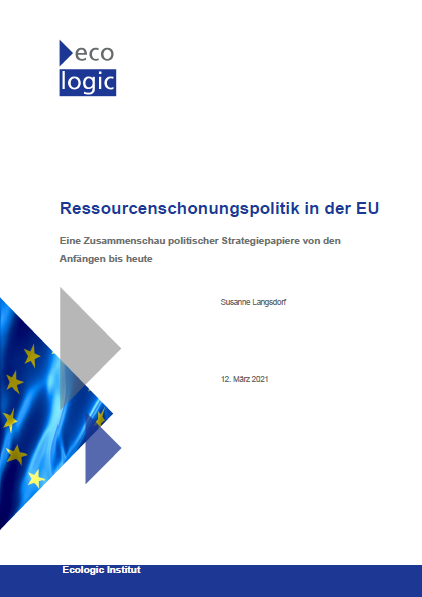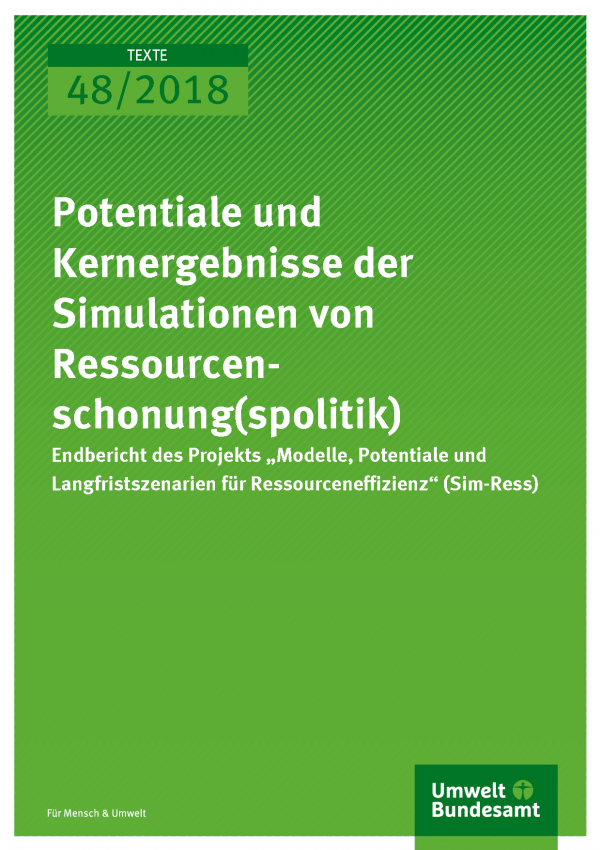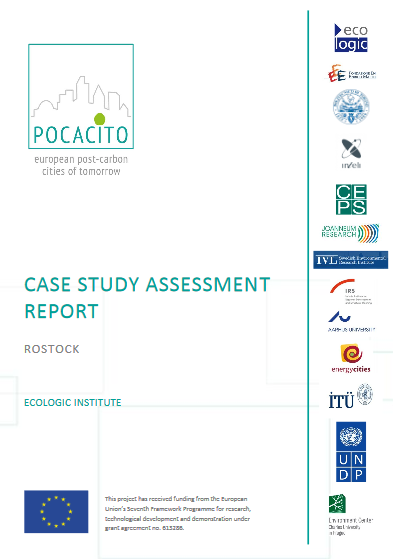
Susanne Langsdorf
MA (International Relations)
BA (Political Science, Public Law)
Coordinator Resource Conservation & Circular Economy
Senior Fellow
- Team
- Topics
Susanne Langsdorf coordinates the field of resource conservation and circular economy at Ecologic Institute. Her work focuses on the analysis of instruments, measures and strategies of German, European and international resource efficiency and circular economy policy. In addition, she has extensive experience engaging stakeholders in research processes, interviewing, moderation, project management and leadership. Susanne Langsdorf works in German, English and Spanish and has a good basic knowledge of Chinese.
At Ecologic Institute, Susanne Langsdorf is currently leading the projects Scientific Support of the Development of a Strategy for a Circular Economy in Germany (NKWS) and Scientific Accompanying Research on Current Discourses on Resource Conservation – National, European and International Level. In addition, as part of the project Resource Efficiency and Natural Resources in an International Context, she supports the work of the International Resource Panel and evaluates the latest research reports for the Federal Ministry for the Environment, Nature Conservation, Nuclear Safety and Consumer Protection.
In various projects, Susanne Langsdorf also worked in cooperation with modelers of different multi-regional input-output models in the field of forecasting resource use in different scenarios and on the effects of resource policy instruments. In SimRess – Models, Potentials and Long-Term Scenarios for Resource Efficiency, political packages of measures to increase resource efficiency were simulated and their effectiveness was examined. In the European research project DYNAMIX, policy approaches for decoupling resource consumption and economic growth in the EU were developed.
Susanne Langsdorf's research also focuses on urbanization and transition processes. Within Ecologic Institute, she led the project Transformation Towards Sustainable and Resilient Infrastructures (TRAFIS) and the European research project Post-Carbon Cities of Tomorrow (POCACITO).
Before joining Ecologic Institute, Susanne Langsdorf worked as a project manager for the Friedrich Ebert Foundation's Shanghai office and was responsible for the office's environmental and energy work.
For her Master's degree in International Relations, Susanne Langsdorf studied at Freie Universität Berlin, Humboldt-Universität zu Berlin, and the University of Potsdam (Germany), concentrating on energy and security policy with a regional focus on China. Her Bachelor’s degree in political science and public law was obtained at the University of Rostock and the Universidad de Granada (Spain).
Contact Susanne Langsdorf by Email
Selected projects by Susanne Langsdorf
Scientific Support of the Development of a Strategy for a Circular Economy in Germany
- Duration
-
-
- Funding
-
German Environment Agency (UBA), Germany
Scientific Accompanying Research on Current Discourses on Resource Conservation
- Duration
-
-
- Funding
-
German Environment Agency (UBA), Germany
Resource Efficiency and Natural Resources in an International Context
- Duration
-
-
- Funding
-
German Environment Agency (UBA), Germany
Sustainable Development of Infrastructures in Regions of Structural Change (TransIS)
- Duration
-
-
- Funding
-
German Environment Agency (UBA), Germany
Transformation Towards Sustainable and Resilient Infrastructures (TRAFIS II)
- Duration
-
-
- Funding
-
German Environment Agency (UBA), Germany
Transformation to Climate Resilient and Resource-conserving Infrastructure (TRAFIS)
- Duration
-
-
- Funding
-
German Environment Agency (UBA), Germany
Resource Flows in Thuringia, Germany (ThueRess)
- Duration
-
-
- Funding
-
Thüringer Energie- und GreenTech-Agentur (ThEGA), Germany
Material Cycles in Hesse
- Duration
-
-
- Funding
-
Hessen Trade & Invest (HTAI), Germany
Selected publications by Susanne Langsdorf
Mederake, Linda; Hinzmann, Mandy; Langsdorf, Susanne (2020): Hintergrundpapier: Plastikpolitik in Deutschland und der EU. Ecologic Institut: Berlin.
Hessen Trade & Invest GmbH (ed.) 2022: Kreislaufführung und Sekundärrohstoffe. Praxisbeispiele und Potenziale. 2. updated edition. Taunusstein / Neuhof: Print Pool GmbH.
Langsdorf, Susanne et al. 2022: Europäische Ressourcensouveränität. Seltene Erden und das Potenzial der Kreislaufwirtschaft: Eine Fallstudie. Potsdam: Friedrich Naumann Foundation for Freedom.
Best, Aaron, Susanne Langsdorf, Laurens Duin, Ariel Araujo (2021). Assessment of resource nexus-related challenges and opportunities in the context of the European Green Deal. Background report for the EEA Briefing "Applying a 'resource nexus' lens to policy: opportunities for increasing coherence".
Langsdorf, Susanne; Duin, Laurens (2021). Absolute Reduktion der Ressourcennutzung. Vorreiter Niederlande - Ein Vorbild für Deutschland? Ecologic Institut, Berlin.
Langsdorf, Susanne; Duin, Laurens (2022). The circular economy and its impact on developing and emerging countries. An explorative study. Ecologic Institute, Berlin.
Langsdorf, Susanne (2021): Ressourcenschonungspolitik in der EU. Eine Zusammenschau politischer Strategiepapiere von den Anfängen bis heute. Ecologic Institut, Berlin.
Hölscher, K., J.M. Wittmayer, A. Olfert, M. Hirschnitz-Garbers, J. Walther, B. Brunnow, G. Schiller, M. Hinzmann, S. Langsdorf, S. Albrecht, S. Maschmeyer, M. Müller, M. Hasenheit (2020). Infrastrukturkopplungen als Beiträge zur Nachhaltigkeitstransformation: Einflussfaktoren und Handlungsmöglichkeiten. Teilbericht des Vorhabens: "Transformation hin zu nachhaltigen, gekoppelten Infrastrukturen". UBA-Texte 100/2020, Umweltbundesamt, Dessau-Roßlau.
Olfert, A., B. Brunnow, G. Schiller, J. Walther, M. Hirschnitz-Garbers, S. Langsdorf, K. Hölscher, J. M. Wittmayer (2020). Nachhaltigkeitspotenziale von innovativen, gekoppelten Infrastrukturen. Teilbericht des Vorhabens: "Transformation hin zu nachhaltigen, gekoppelten Infrastrukturen". UBA-Texte 99/2020, Umweltbundesamt, Dessau-Roßlau.
Hirschnitz-Garbers, M., M. Hinzmann, S. Langsdorf, J. Walther, A. Olfert, G. Schiller, B. Brunnow, K. Hölscher, J.M. Wittmayer (2020). Erfolgsbedingungen und Prozessbegleitung für eine nachhaltige Umgestaltung von Infrastrukturkopplungen. Teilbericht des Vorhabens: "Transformation hin zu nachhaltigen, gekoppelten Infrastrukturen". UBA-Texte 101/2020, Umweltbundesamt, Dessau-Roßlau.
Hirschnitz-Garbers, M., A. Olfert, G. Schiller, B. Brunnow, K. Hölscher, J.M. Wittmayer, J. Walther, M. Hinzmann, S. Langsdorf (2020). Transformation hin zu nachhaltigen, gekoppelten Infrastrukturen – Synthese der Ergebnisse. Teilbericht des Vorhabens: "Transformation hin zu nachhaltigen, gekoppelten Infrastrukturen". UBA-Texte 102/2020, Umweltbundesamt, Dessau-Roßlau.
Hirschnitz-Garbers, Martin, Susanne Langsdorf, Ullrich Lorenz 2018: Ressourcenschonung als Zukunftsaufgabe – Ansatzpunkte für eine systemische Ressourcenpolitik. Umweltbundesamt: Dessau-Roßlau.
Martin Hirschnitz-Garbers et. al. 2018: Potentiale und Kernergebnisse der Simulationen von Ressourcenschonung(spolitik). Endbericht des Projekts "Modelle, Potentiale und Langfristszenarien für Ressourceneffizienz" (Sim-Ress). UBA Texte 48/2018. Umweltbundesamt: Dessau-Roßlau.
Knoblauch, Doris; Langsdorf, Susanne (2017): Nachhaltige Kommunen durch Digitalisierung?! – Ein Verfahren zur Einschätzung der Auswirkungen kommunaler Digitalisierungsprojekte auf eine nachhaltige Entwicklung. In: Bertelsmann Stiftung (Hrsg.) Monitor Nachhaltige Kommune. Bericht 2017. Schwerpunktthema Digitalisierung. Gütersloh.
Albrecht, S., Schock, M. (2015): Individual Case Study Assessment Report – Rostock. European Union FP7: POCACITO - Post-carbon cities in Europe: A long-term outlook under the grant agreement n° 613286. WP3 Deliverable.
Hirschnitz-Garbers, M. und Langsdorf, S. (2015): Informationskampagnen für Konsumentinnen und Konsumenten – Effekte und Ausrichtungen. Vertiefungsanalyse 4 im Projekt Ressourcenpolitik: Analyse der ressourcenpolitischen Debatte und Entwicklung von Politikoptionen (PolRess). www.ressourcenpolitik.de




